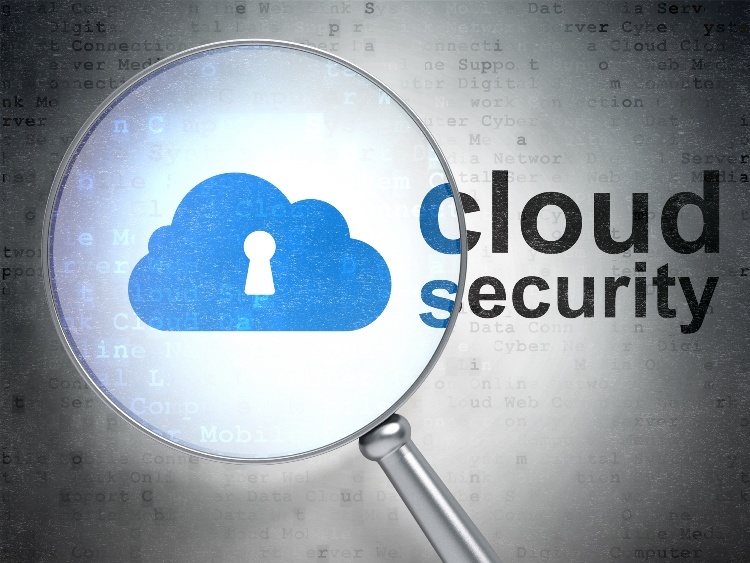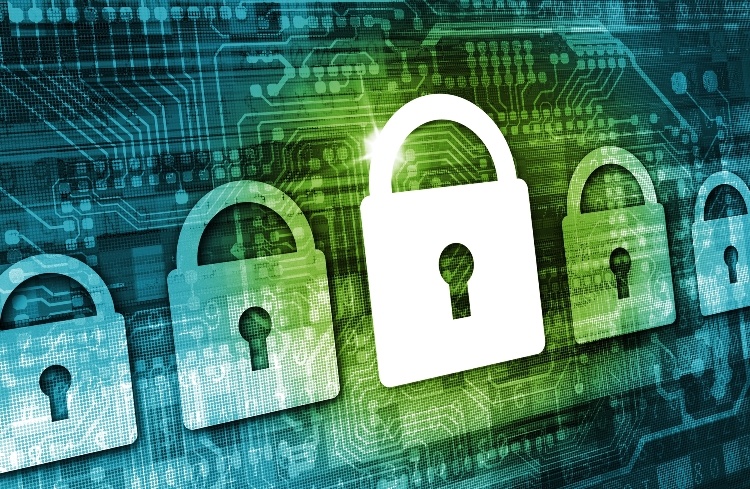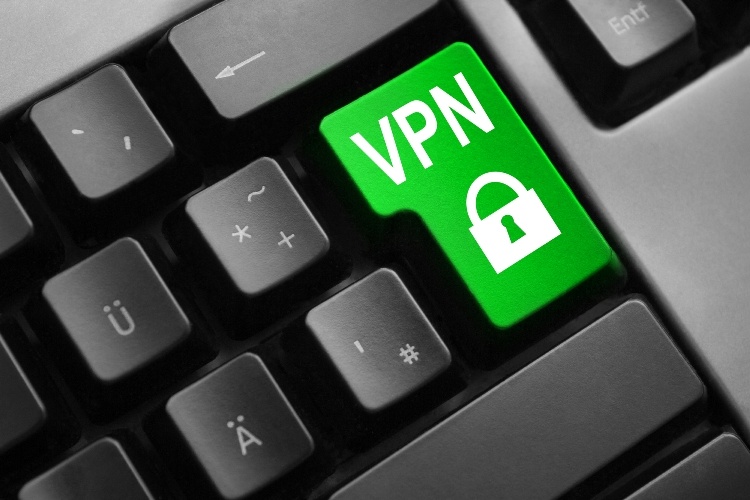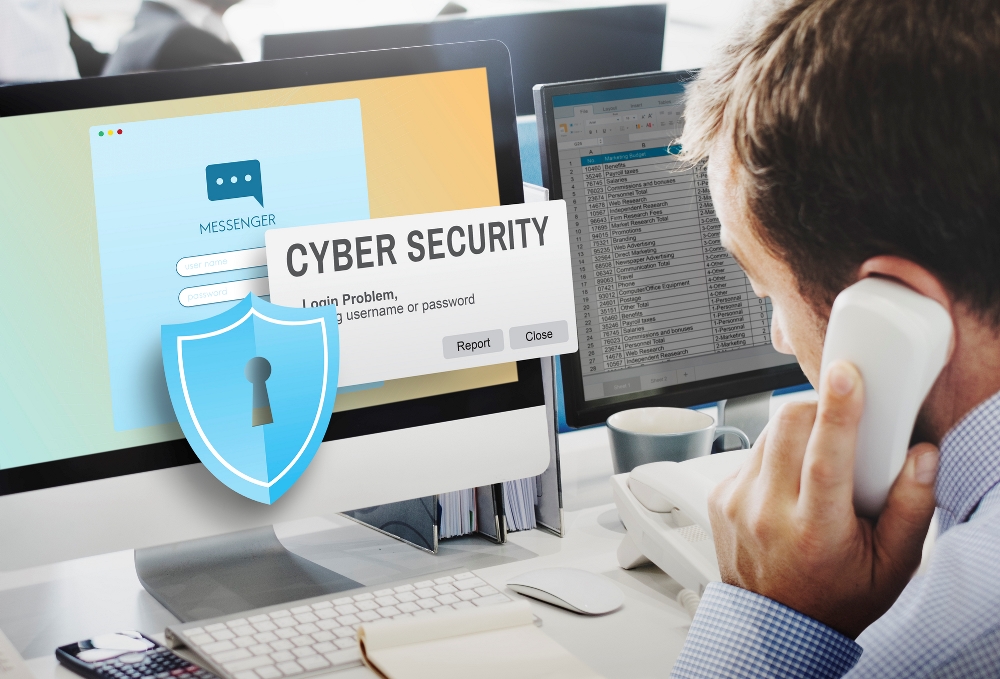Latest News
Latest blogs and updates from SonicWall-Sales.com
Best Practices for Cloud Security in 2021
Cloud security is something almost any business needs to pay more attention to in this day and age. If you haven’t taken the time to think about the cloud and the security solutions you need for your business, we encourage you to keep reading as we share the best practices for cloud security. SonicWall firewalls software is one of the best solutions for cloud security, and we’d highly encourage you to invest in this solution to protect your business in the future.

Why is Cloud Security So Important?
Cloud security is becoming more of a risk to companies around the world. It’s believed that by last year, over half of the world’s companies’ budgets would have increase in this area due to the number of risks to keep in mind. However, so many people don’t realise that their current security setup has no use in the cloud. You’ll find that cybercrime is only continuing to increase year after year, which is why looking after your business in the cloud is so important. While the cloud offers many advantages to business owners, you need to ensure you are protecting yourself while working in the cloud.
Cloud Security Best Practices
By following these best practices, you can ensure you protect your business when working in the cloud. While incidents could happen at any time, the more you prepare for all eventualities, the less likely you’ll be to suffer from issues in the future.
Choose the Best Cloud Service Provider
If you aren’t already working in the cloud, we recommend taking the time to research the right cloud service provider for your needs. Opt for one which has some form of cloud security built into the solution. Read reviews online and see what other companies have to say about their services. While a company can share with you everything they have to offer, it’s always best to hear what other customers have to say first. Ask them to confirm what they offer and show certificates where applicable.
Train Your Team
When we install a secure cloud system within our business, so much of the time and effort goes into the installation itself. While a SonicWall firewall will offer your office many benefits, you still need to train your team on why you are using this in the first place. The more your team are aware of the risk of cybersecurity threats, the less likely they will be to click on a malicious link. They’ll also need to know the correct way to report any concerns they have. By offering an open chain of communication to your whole team, you can be sure that everyone is on the same page and isn’t afraid to bring up any concerns they have about your cloud security software.
Consider Your Password Policy
An important part of protecting any business and software system is the password that you are using. Your business needs to have a policy in place for secure cloud services to ensure passwords are changed frequently. Old and new employees need to be reminded of their privileges, and you should have the ability to take these away as needed if someone leaves your organisation. When you first welcome an employee to the company, ensure they are only given access to the tools they truly need to do their job. While it can be so easy just to give everyone access to anything in your business, this is usually a recipe for disaster for most business owners.
Opt to Use SonicWall Firewall Software
SonicWall firewalls are one of the world’s leading solutions for companies who are concerned about cloud security. Since the invention of the firewall, the team at SonicWall has invested their time and energy into creating resources that are suitable for businesses of all shapes and sizes. Your office is never going to be too small to benefit from working with our team and finding the right firewall for your needs. Many small business owners believe they don’t need to worry about cloud security, but this couldn’t be further from the truth. Start protecting your business today by investing in the right solutions to protect your company from cybercriminals. You’ve invested so much time and money into your business already, so make sure you aren’t letting that go to waste.
Cyberattacks are continuing to increase in regularity following the recent pandemic. With criminals finding new ways to attack businesses, you need to ensure you are doing everything in your power to protect yourself this year. Contact our team today for more information about how SonicWall firewalls can help to protect your business. It’s never too late to start making changes to the way you operate. By following the best practices for cloud security we shared above, you can protect yourself and your employees for many years to come.
The Possible Challenges in Cloud Security
The cloud offers many benefits to business owners, but you’ll find there are some challenges that occur when implementing cloud security. By choosing the right solution for your business, you’ll be able to secure your data and work for many years to come. Our SonicWall firewall page shares some best options on the market currently, which would be ideal for businesses of any shape and size. Keep reading to discover some common security challenges in the cloud and how we can help you to overcome these in the future.

A Lack of Knowledge
Before delving into some more technical parts of cloud security, the biggest risk for many companies is a lack of knowledge and expertise in this area. If you don’t know where to start when it comes to cloud security, this is a big sign that you might need some assistance in this area. When security isn’t given the attention it needs, you’ll find that you might be opening your business up to risks in the future. A SonicWall firewall is a great place to start for anyone looking to improve security in their business. It’s a great solution for small and medium-sized businesses, which also need to ensure they are doing all they can to protect themselves in the cloud.
Data Security
Unfortunately, cloud computing still has some risks of traditional storage solutions. Virus attacks and website hacking occur in the cloud, which offers a big risk to companies storing a large amount of data in this way. Companies need to think about this very carefully before opting to use the cloud for the first time. When you transfer your data over, you then need to make sure you are using a cloud security system to protect it. We recommend working with our team to ensure you follow the proper procedures and don’t leave your system and data open to intruders. It’s critical that you keep your customers’ data safe in order to avoid violating GDPR and other regulations in this field. This should be the top priority for anyone using cloud security, yet it’s one of the toughest cloud security challenges.
The Additional Costs of Security Solutions
Cloud security doesn’t have to be costly, but this is one of the biggest misconceptions we see in cloud security articles. The great news is that SonicWall firewall security is designed for businesses of all shapes and sizes. It doesn’t have to cost you a fortune to protect your business, but it’s well worth investing in this. It’s never too late to start protecting yourself further and begin following cloud security best practices. While money is tight for many companies right now, you’ll find yourself in an even worse position if you were the victim of an attack. Keep this in mind before making any decisions or trying to save a tiny bit of money on your cloud security.
New Technology
Technology is developing at a rapid rate, but naturally, this brings with it some challenges. You’ll find that while cloud computing is at the cutting edge of technology, this means there are still some weaknesses in these systems. We recommend always protecting yourself from a security point of view, as virtual reality and AI are still so new to us all. You never know when something might go wrong when using the cloud or how hackers will continue to find their way into new systems in the coming years. Be wary about what technology you are adding to your organisation, and test things carefully before adopting new ways of working.
Educating Your Team
As the cloud is still so new to many people, employees find their team is often disinterested in learning about cloud security. They might not take this type of security as seriously as they would when compared to other forms of security in their workplace. It’s so important to take the time to educate your team about working in the cloud and the tools you’ve put in place to protect your team. When you first install a new SonicWall firewall, share with your team why you’ve done this and how it will protect their jobs. The more you can inform your team about the changes they are making and why you’ve done them, the more likely they’ll be to engage with cloud security best practices in the future.
As you can see, there are quite a few challenges to cloud security. While technology is developing at such a rapid rate, we can only expect these challenges to continue to grow in the coming years. Contact our team today for more information about security solutions for your business. We offer a full range of SonicWall firewalls, all of which are ideal for protecting businesses of any size from threats while working in the cloud.
New SonicWall Firewall Solutions for Your Business
If you are looking to protect your business in the coming years, you’ll want to keep an eye out for the new SonicWall firewall options that are being released. Today we’re going to share some of the most exciting updates to the SonicWall firewall collection and how their firewall performance can improve your business. Keep reading to learn about these new solutions and find out more here about looking after your business with SonicWall.

New SonicWall Firewalls
Let’s start by taking a look at the three new SonicWall firewall options on the market. These are the SonicWall NSa 4700, NSa 6700 and NSsp 13700. They offer triple the protection your business might currently have and give businesses of any size an easy way to increase their security while still enjoying the high-performance levels that SonicWall firewalls are known for. Each of these options is supported with the current TLS 1.3 encryption standard, and they are powered by SonicOS 7.0.1. They offer users a modern experience with advanced security and improved management capabilities.
The great benefit of these new solutions is that they are supported by the Capture ATP with patented Real-Time Deep Memory Inspection. This has been highly rated in various industry tests, so you can be sure your business is fully protected from the ever-changing threats that are out there. Let’s take a look at which option would be best for your business depending on your company’s size and current needs.
SonicWall NSa 4700 and NSa 6700
Both of these solutions would be ideal for a mid-sized network. They offer some of the highest port densities when compared to other similar products, which still have a lower TCO. The NSa 4700 has 18 Gbps of throughput, whereas this increases to 36 Gbps with the NSa 4600. As far as the performance levels, the NSa 4700 is 17 times better than the last SonicWall generation, whereas the NSa 4600 is six times better. They are a great option for a business that is looking to expand and scale up in the next few years, as you can connect with millions of users with ease. The 6700 has the added benefit of both 40G and 25G connectivity, which offers multi-gigabit threat protection.
SonicWall NSsp 13700
For larger businesses, service providers, or government agencies, this is a great option to help support millions of connections. It’s a high-end firewall solution that will stop any bottlenecks from forming and keep up with your demands even as a large business. This is one of the top new firewalls for larger organisations and offers TLS/SSL performance that’s improved by seven times when compared to the previous model. It has high-speed GbE ports and is ideal for businesses looking to grow and connect to a wider audience in the near future.
SonicWall Capture Labs Portal
As well as offering new firewalls, SonicWall also has a few other updates to their solutions. The one we are most excited about sharing with you is the SonicWall Capture Labs Portal. It will offer you a free and centralised location that allows you to learn more about security news. The SonicWall threat search team is known for their cutting edge news and information, and you’ll be able to learn more about potential malicious activities that might impact your business in the coming years. We really encourage you to use the research tools that are included in this solution, as you’ll be able to search for threats and learn more about what could impact your business with a single interface. As with anything in life, the more information you equip yourself with, the more you’ll be able to protect yourself along with your SonicWall firewall.
SonicWall NSM 2.3
If you are looking for a way to simplify the management and deployment of distributed networks, this is an excellent option with improved capabilities. It’s a more intuitive, self-guided option that allows you to deploy and manage SD-WAN networks across all sites. You can do everything from one place, which we know many business owners will appreciate. The Template solution will help to save time as you won’t need to use manual configuration when you are adjusting each site’s requirements.
With so many exciting updates and new products, we can’t wait to see how these SonicWall firewalls and solutions will help to improve the lives of many business owners in the coming years. If you haven’t already invested in a SonicWall firewall for your business, there’s no time like the present with these new options to fit everyone’s needs. Contact our team today to discuss your security concerns and how a SonicWall firewall can protect your business and help it to scale in the coming years. We’ll share with you the best option for your size of business and needs and ensure you are protected from the advanced security concerns that threaten businesses on a daily basis.
Read the next article: The Possible Challenges in Cloud Security
What is a Perimeter Firewall?
For the past few decades, firewalls have been a critical tool for IT security teams. This type of technology has continued to advance, and as cybercriminals become more inventive with their work, companies are having to find new ways to protect their business. With so many types of firewalls to choose from nowadays, we know it can be a challenge to know which is the best option for your business. Keep reading to discover everything you need to know about perimeter firewalls and how they can help you to secure your network.

Perimeter Firewalls
A perimeter firewall works to defend your private network from other public networks, for example, the internet. This security application can be installed as either hardware or software and is the first way to stop intruders from getting into your business. A perimeter firewall will inspect any packets that come in and out of the network and then block or allow them based on the rules that are set.
These rules are better known as access control lists, which specify which network names, port numbers, and IP addresses are allowed. You can configure these to control both the inbound and outbound traffic. The main reason any company would decide to install a perimeter firewall is to protect the company from external attacks. They can also be used within larger companies to stop insider threats and create improved segmentation. Companies of all sizes and in various industries could benefit from this security solution, which is why it’s so important to understand perimeter networks.
What is a Network Perimeter?
The terms firewall and network perimeter can sometimes be used to describe the same thing, although they do really have different meanings. Your network perimeter is the edge of your internal network, and it is the boundary that controls what comes in and out of the network. On the other hand, your new SonicWall firewall will work to filter out the traffic that’s trying to cross this boundary. The network perimeter also includes other elements, such as the border routers. This is used to describe any type of router that is in two networks, one that’s internal and one public network. Intrusion detection systems and intrusion prevention systems are also critical for the network perimeter and will help to monitor and detect malicious activity. Finally, demilitarized zones sit between the internal and public networks. These all work together to keep your network secure at all times.
What are the Benefits of a Perimeter Firewall?
Before investing in a Sonic firewall, it’s important to understand the benefits that it can offer to your business. Any business today needs to have a Soho firewall or a similar solution in place to ensure you prevent the sophisticated attacks that are being seen more commonly. No company is too small to be concerned about their security, as you could quickly lose your business and data if you aren’t careful. One of the top benefits of a perimeter firewall is traffic monitoring. It will allow the firewall to monitor incoming and outgoing transfers of data, protecting your network from any malicious data entering.
A firewall will work to detect and prevent Trojans, which smuggle themselves into your network when they attach to files. These can quickly take over your network and make them more vulnerable to even greater attacks. No business can afford to be taken down by one of these attacks, which is why we recommend everyone uses a firewall to protect themselves. Finally, you’ll find that keyloggers can be stopped by firewalls, which are spyware that try to steal your personal information by recording keystrokes. This is an advanced solution that will put your business at risk if you aren’t careful about protecting yourself.
The great news is that there are many options on offer for businesses of all sizes when it comes to choosing a perimeter firewall. Our team will be happy to guide you through this process and ensure you are set up with a solution that’s affordable and effective for the type of business you run. We can work with you to understand your current concerns and ensure that the SonicWall firewall you choose is a suitable solution for the network you are operating currently.
For more information about using a perimeter firewall or to discuss any concerns, you might have about security in your business, contact our team today. We are experts at installing firewalls for companies and can suggest the best option for your budget and needs. It’s never too late to add another layer of protection to your company, but the sooner you take the first step, the better. This is one upgrade you’ll never regret, and it will help you to keep building your business over the coming years.
How to Set Up a VPN in Your Office
With so many of us still working from home, more people than ever are considering setting up a complete home office that they’ll use for the next few years. A VPN is a crucial part of any good home office setup, and you’ll find that a work from home firewall offers you the protection you need to keep working remotely in a secure manner. Here we’re going to share with you our top tips for setting up a VPN and firewall at home and how SonicWall Sales can assist you with this task.

What is a VPN?
Before we go any further, let’s clarify what we mean by a VPN. VPNs allow you to work from anywhere in the world securely, and it is an abbreviation for the virtual private networks. You’ll be able to securely connect to your office network, and you’ll feel like you are still working in your office even when you are in the comfort of your own home. The connection is encrypted, so you don’t have to worry about anyone else seeing what you are up to online. This allows you to work from anywhere in the world with this private pipeline looking after your work wherever you are based.
What Do You Need to Set Up an Office VPN?
Many of our clients wonder what they will need to set up a VPN at home and wonder if their home office setup is advanced enough to install a VPN or perimeter firewall. A home firewall with VPN can benefit anyone working from home, but you’ll need to find the right option to fit your needs. VPN-enabled routers need to offer you both wired and wireless connectivity, and they can support up to ten connections. A SonicWall firewall is the best option for any home office, and you’ll find that there’s a solution to fit everyone’s budget and requirements.
When you purchase a VPN-enabled router, it should come with the full instructions and a setup wizard to help you with the process. The software will be installed with the help of the wizard, and you’ll just need to follow the steps that appear on your screen. You don’t need to be particularly advanced at using technology to follow this process, and you’ll find that it will be configured for your computer and network without you having to do anything too difficult. Of course, your team will be more than happy to assist you with this task and guide you through the process if you are struggling during the installation.
In order to make your VPN as secure as possible, ensure you choose the most secure encryption option on your router. For most people, you’ll want to select WPA2 with AES. From there, make sure you change the router’s password. It will likely come with a very simple password that hackers can easily guess, so you’ll need to create something unique to you with numbers, letters, and characters. Create a strong password that can easily be remembered but that no one else will be able to get into.
Setting Up Users on a VPN
If you have someone else working with you at home, you might need to grant access to the VPN. While this isn’t such a big concern when working from home, if you are installing an office VPN, this is something you must do. You will use remote management for this task, which allows you to create accounts and then download and install the VPN client on the computer. You’ll repeat this step for everyone who needs to be installed on the system, but if you are the only one working at home or in your office, you can skip over this step. You’ll now be able to access your work from anywhere in the world, so the next time you have to travel for business, you won’t have to worry about falling behind.
With so many types of firewalls to choose from, we know the options can be overwhelming. SonicWall offers a wide variety of options to fit businesses of all sizes, and you’ll find there are some great solutions for home office VPNs. You’ll be able to continue working from home for the foreseeable future in a safe and secure manner while still being able to get as much work done as you would in the office. For many companies, VPNs have been a lifesaver in the past year, and they have helped companies to stay ahead of the competition during this challenging time.
For more information about adding a VPN to your home office, contact our team today. We’ll be happy to discuss any questions you might have and share with you our top recommendations for the best VPN to keep you secure when you are looking to improve your home office setup.
IoT Devices: If You Connect It, Protect It
7 “Smart†Steps to secure and protect your Home Network
A refrigerator that tells you there was a power outage — and whether it lasted long enough to spoil your food. Doorbells show you who’s at the door and allow you to communicate with them from across the country. Home medical devices that can collect data and transmit it directly to your doctor.
Present in countless applications, smart devices have revolutionized the way we live and work. Smart devices are a subset of a larger group of internet-connected products known as IoT (Internet of Things) devices. These devices can be controlled remotely, usually through a smartphone app or webpage, and send and receive data without human intervention.
In the 20 years since the term got wide usage, the number and scope of IoT devices have grown tremendously. According to Security Today, from 2018 through 2020, IoT devices jumped from 7 billion to 31 billion, with 127 new IoT devices coming online each second.
By 2020, IoT technology is expected to be present in the designs of 95% of new electronics products. And over the next five years, the number of connected devices is forecasted to climb to 41.6 billion and generate a mind-boggling 79.4 ZB of data (for reference, the entirety of the World Wide Web, as it existed in 2009, was estimated to be less than a half a ZB.)
Smart devices introduce conveniences unthinkable a decade ago. But unfortunately, they also bring a new set of risks that could endanger your privacy and your data, your other devices, and even other connected networks.
For starters, there’s currently no standard for securing IoT devices — companies are free to put as much or as little security in their products as they want. Even when vulnerabilities are discovered, many devices are not updated because their cost is too low, or there is no way to update them. When are updates are available, they’re never pushed out, or customers never hear about them. In all, IoT devices are open to wide exploitation.
However, there are several other risks related to the way people use these devices. Many users believe they don’t have the time or expertise to secure their IoT devices adequately — and that, because they’re not a large business or high-profile individual, they’re unlikely to be targeted.
But work statistics since COVID-19 has changed all that. According to Global Workplace Analytics, 25-30% of the American workforce now works from home. That means cybercriminals increasingly see remote employees’ home networks — especially poorly secured IoT devices that connect to them — as a back door to compromise corporate networks with lower chances of detection.
According to the mid-year update to the SonicWall 2021 Cyber Threat Report, cybercriminals have taken advantage of the increasingly distributed data landscapes. Not only have they increased the frequency of their attacks, but they’ve also expanded how they attack. As a result, ransomware attacks sharply rose to 304.6 million in 2020, up 62% over 2019. And the attacks increased to 226.3 million through May of 2021 — up 116% year-to-date over 2020.
While you can’t necessarily avoid being targeted, you can significantly decrease your odds of compromise by taking these 7 “smart†steps for better cybersecurity:
- Safeguard Your Router. By default, Routers are accessible with a simple password like “admin†— or no password — and are easily accessible to cybercriminals. Another risk flag is when users do not change the default Wi-Fi network name (or SSID), thus revealing the brand of the router. All a would-be hacker has to do is search default settings. Ditching the default settings go a long way toward increasing security.
- Stay Up to Date. Many devices offer the option to receive updates for firmware, vulnerability/bug fixes and more automatically. If this option is not enabled by default, turn it on. In cases where you must perform updates manually, make a note on your calendar to remind you to check for them regularly.
- Buy from the Best. Stick with companies known for prioritizing security in their offerings. These established brands are also more likely to push updates and patch vulnerabilities.
- Be Password Savvy. Password protection is significantly less effective when you use the same email and password combo for multiple accounts. If any of these accounts are breached, you’ve put your entire online existence at risk — and in the case of IoT devices connected to corporate networks, your company’s existence is at risk as well. With the advent of password managers, which assign a different password for each account and remember them for you, there’s no excuse to be lazy with credential hygiene.
- Leverage Two-Factor Authentication. With two-factor authentication (2FA), you’re offered the security of the traditional credential-based sign-in, plus an added layer of protection in the form of a code that is sent to a separate device and must be entered into the original app. With 2FA, even if the login credentials are compromised, the account won’t be accessible unless the attacker also has access to the secondary device.
- Divide and Conquer. Many popular routers provide a feature to create a secondary guest Wi-Fi access to your router. The guest Wi-Fi feature allows internet access without granting access to the full home network (and your computers, hard drives, etc.). Use Guest settings to isolate less-secure Wi-Fi connected smart home devices (and the malware that might infect them).
- Do I Need This? No matter how secure a smart device is, it can never match the safety and privacy of a non-internet-enabled device. Before purchasing a new smart device, ask yourself if the increased risk is worth adding convenience and features. If you’re likely to use the smart features only occasionally or not at all, opt for the non-smart device.
The network of connections created by the Internet of Things creates opportunities and challenges for individuals and businesses. SonicWall encourages everyone to be smart about smart devices and assume the responsibility of maintaining the health of their home network. Cybersecurity is everyone’s business. By being diligent, we can ensure the security of our home networks and anywhere else our connections may take us.
Why Is Cybersecurity So Important for Businesses in 2021?
The past year has brought about many changes in the way in which businesses operate. With more companies than ever before relying on the internet and computer systems for their everyday work tasks, protecting your business from cybersecurity attacks is more critical than ever before. Check our page here for more information about securing your business, and keep reading as we explore why cybersecurity is crucial for businesses to consider in 2021.

Cyberattacks Impact Businesses of All Sizes
If you think cyberattacks are reserved just for large corporations and CEOs to deal with, you couldn’t be more wrong. Cyberattacks happen to companies around the world every minute, and once an attack on your business takes place, you’ll find that thousands of people may be impacted. Some of the most clever ransomware attacks shut down whole cities with just one attack, which costs businesses millions of dollars over a few days. Cyberattacks can impact businesses around the world, and you’ll find that regardless of where you are based, you can easily be attacked at any time. While you may think that these attacks will only impact the senior management in your business, they could also put your entry-level employees at risk. This is why education is so critical throughout your organisation so that everyone is aware of the potential signs of a cyberattack.
Technological Developments
While we’d like to hope that technological developments would help to reduce the number of cyberattacks and offer us more protection, sadly, this isn’t the case at all. The importance of cybersecurity is more prominent in our society than ever before, especially with the introduction of 5G networks across the country. This faster speed of broadband makes it easier for cybersecurity in 2021 to be compromised. Technological developments can also help to automate cyberattacks and could increase the number of connected devices over the next decade by billions.
Cloud Computing
Cloud computing offers so many benefits to businesses, and it’s an excellent way to operate and store your files online. However, as public cloud and software as a service is being relied on more by companies, these are now becoming subject to different risks and new cyberattacks. Even government organisations will be relying on cloud storage more in 2021, meaning that some of the country’s most confidential information could easily be compromised during an attack.
Loss of Jobs and Income
One of the reasons that any business owner should start to care more about cyberattacks is the potential loss of jobs and income. After the recent pandemic, none of us can afford to become unemployed following a cyberattack, and your employees are probably already concerned about this happening anyway. When businesses lose thousands of dollars after an attack, sometimes their only option is to let their team members go to cut company costs. Even companies that would seem finally secure from the outside have lost millions to cyberattacks, which cause them to redefine their way of working completely. This is why installing a SonicWall firewall before it’s too late is something we recommend all business owners do immediately.
Personal Information Loss
Although we’ve mainly focused on the concerns surrounding cyberattacks on businesses, there’s also the risk of your personal data being lost online. This data is sometimes stolen and sold on for a huge amount of money, putting your personal safety at risk just because you didn’t consider a SonicWall support firewall for your home or small business. When companies have their accounts hacked, they can also lose the data of thousands of their customers, which can cause a massive spiral effect and more issues further down the line. Even devices like Ring, which is a camera security device many homeowners are using, have been hacked in the past. This can leave you feeling unsafe in your home, which is somewhere we all deserve to feel safe and secure.
Keeping Up to Date with Cybersecurity 2021
Now that you know the answer to the question of why cybersecurity is important, it’s vital that you continue to educate yourself about cybersecurity changes. As these attacks continue to develop, it’s likely regulations and laws will change, and as a business owner, you need to keep on top of these at all times. We also encourage you to put more time and resources into training your employees, as individuals lower down in your company are likely also to be the victims of these attacks.
For more information about how we can help you to prevent cybersecurity attacks this year, don’t hesitate to contact our team today. We’ll be happy to share our knowledge and expertise and work with you to prevent the loss of jobs and income for your business. Cybersecurity attacks aren’t going anywhere, so the sooner you defend yourself, the more protected your business will be in the future.
You might be interested to read the next post: How to Set Up a VPN in Your Office
Azure Firewall Services vs SonicWall NSv Which is the Best Option for Your Business?
When it comes to selecting a new firewall for your business, we understand the options can be overwhelming. With so many solutions available to businesses of all sizes, it can be hard to select the right option to protect your systems. Two of the most popular options on the market are Microsoft Azure Firewall and the SonicWall NSv. To help you select the right one for your needs, keep reading as we put these two products head to head to compare their features and benefits. When you are ready to buy a SonicWall firewall, make sure you check out our full range of products to suit every type of business.

Microsoft Azure Firewall
Let's start our Azure vs SonicWall firewall comparison by taking a deeper look into Azure Firewall. This solution is mainly a packet filter, which in this case is a stateful packet filter. They aren't visible in the data stream which is transported in your network and are generally a lot less effective than other solutions, such as a SonicWall firewall. They are often known to miss identifying and decoding applications, especially since everything online today relies on HTTP and HTTPS. Azure Firewall only added a few more functionalities, and it can only filter your web traffic using the URL name. It looks into the HTML header and then can also offer a reverse name lookup for encrypted traffic.
When comparing these two options, you'll find that Microsoft Azure can only do a small amount of what a SonicWall firewall can do. While TLS 1.3 is partially supported by Azure Firewall, there is no sandbox or analysis of zero-day in-memory threats. While you would normally be able to map any part of source IP and destination ports, Azure mainly supports the one-to-one mapping with private and public IPs. It's very limited from this point of view, which means it's not the best option for audits or troubleshooting. Azure Firewall is mainly good for debugging, and you'll need to manage this system with settings management. One major issue companies notice is that once you set things up, it's very challenging or impossible to change.
If you are used to the Azure user interface, you may be aware of the issues that it faces. However, if you are just changing over to this, you will likely become frustrated with the Azure Firewall. It lacks policy elements and makes it impossible to change the names of objects and complete other tasks that may be needed within your database.
SonicWall NSv Series Virtual Firewall
The SonicWall NSv firewall is a virtual firewall that offers all the benefits that you would expect from a traditional physical firewall. However, you also benefit from the virtual solution, which makes it easier for businesses to scale in the future. Most users immediately notice how easy it is to use while also offering cost-saving benefits in the long run. It's a next-generation firewall that offers application-layer filtering as well as socket filters. Unlike the Azure Firewall, which only filters some traffic, it will filter all the actual traffic flowing into the two ports. The wide range of security tools it has to offer will protect your business from potential attacks.
SonicWall knows how important cybersecurity is for businesses today and will be one of the best tools to help protect your company from potential attacks. NSv offers a wide range of security tools that will protect you from misuse attacks and side-channel attacks, as well as various other concerns businesses have. It's known for its resilience, availability, and excellent service delivery.
NSv is currently available for VMware ESXi but can also offer lab use for Azure, VMware Workstation, AWS, and other systems. You'll find that the cloud and the virtual versions offer the same benefits as the appliances, such as Gateway Anti-Virus, Deep Packet Inspection, and RTDMI in-memory scanners. It's already been rated as one of the most effective firewall solutions, meeting all the firewall standards that are expected by modern businesses. You'll find this to be a good solution for any type of business, and it will soon become an integral part of your cybersecurity plans.
As you can see, there are so many benefits to using a Sonic firewall, which is why we recommend this solution to small, medium, and large businesses across the country. If you want to buy a SonicWall firewall or have more questions about how this solution could assist your business, don't hesitate to contact our team today. A firewall is something that all businesses should be using in this day and age, and it can protect you from potential attacks which may destroy your whole system. If you are primarily operating your business online, it's essential you protect yourself sooner than later to avoid causing devastation in the future for your business and employees.
Choosing the Best Cyber Insurance for Your Business
As businesses continue to rely more on the internet and computers for their day-to-day work, something that companies should be thinking about purchasing is cyber insurance. While no two companies needs are exactly the same, it’s important to think about the risks your business is under every day. Even if you do opt to purchase cyber insurance, it’s important to note that you will still need to take basic measures to try and prevent a cyberattack. However, it does mean that if an attack occurs, you’ll have extra protection and a backup for your business.

What is Cyber Insurance?
We’re all familiar with more traditional insurance products, but cyber insurance is a reasonably new entry into the insurance market. While you likely already have a firewall in place for your systems, such as a SonicWall firewall, (Check our page for more information about firewall) cybersecurity insurance can protect your business even further. Cyber insurance offers businesses and individuals cover during the digital age and can protect you from cyber hacks and data breaches and the massive amount of money your business could lose.
While you will still need to protect your system with a SonicWall firewall, you’ll have an additional backup if you do lose business as a result of a cyber-attack. This cover will offer you the support you need to avoid bankruptcy and other financial losses following a cyberattack. With thousands of businesses being attacked in this way each month, it’s more important than ever to protect your business from this devastation in the future.
Common Attacks to Protect Your Business From
There are many different types of cyber-attack that you’ll want to try and protect your business from. Malware and ransomware are common issues within businesses today, and these are two of the top reasons to consider cyber insurance. Hacking is another concern for companies of all sizes, and this involves someone acquiring part or all of their computer system. As technology continues to progress, you’ll find there are more and more attacks on businesses, which is why you need to prepare in advance to protect yourself from any disruption to your company.
What Does Cyber Insurance Cover?
If you find that you become a victim of a cyber-attack, you’ll usually be covered for both first and third party financial costs. This could include replacing your data and electronic systems when they are corrupted, stolen, lost, or damaged. This type of insurance doesn’t just involve crimes but could also involve the physical loss of devices. Your business costs will be covered for the investigation of the crime and the recovery costs for the data. They will help restore your computer systems and replace any lost income if you have to shut your business down.
Any claims that are made against you by third parties will also be covered, including settlements and damages. While most businesses understand the risks these types of attacks could have to their systems, you may also have to legally defend yourself against a GDPR claim. This can set companies back thousands or millions of pounds, which is something no one can afford.
Who Should Consider Cyber Insurance?
Cyber security insurance isn’t just reserved for the world’s biggest companies, and small and medium-sized businesses will also benefit from this. SonicWall firewalls are the first step any business should take to protect their work, but from there, you’ll also want to consider your cyber insurance provider. If you are sending, storing, or using electronic data, you are a good candidate for cyber insurance. It’s often overlooked by small business owners, but it’s something we highly encourage anyone to look at alongside SonicWall firewall support.
How Much Will Cyber Insurance Cost?
As with any type of insurance policy, the cost of your cyber insurance will vary depending on the size of your company and your current needs. Your annual revenue, type of data, and network security levels will also be considered, and the provider will ask if you have a firewall in place already to protect your system. Naturally, a larger company will have much more data to protect and more employees using the system. With a higher number of records and people involved in these processes, the risks of an attack only continue to increase. Compare your cyber security insurance UK options with various providers to find the best price point for your needs.
Regardless of the size of your business, we highly encourage you to consider cyber insurance as part of your cybersecurity plans. The monthly or annual charge will be well worth the protection you receive, and in the case of an emergency, you’ll be fully protected as you restore your business and resolve any issues with third parties.
What's Driving the Rise in Ransomware?
See Why Cybercrime is Way Up and Who is Most at Risk
The first half of 2021 raised a lot of questions when it comes to ransomware: Are more businesses choosing to pay a ransom? Is Ryuk still reigning supreme? And what in the world happened to REvil??
With ransomware growing so quickly in both scope and sophistication, it’s never been more critical to stay on top of the latest developments. To learn more about the trends that will drive ransomware during the second half of 2021 and beyond, check out our upcoming webinar, “What’s Driving the Rise in Ransomware?â€
The Most Important Features to Consider When Choosing a Firewall
When it comes to choosing a firewall, there are many features to take into account. A firewall offers businesses of all sizes today a wide variety of benefits, including protection from malware, viruses and hackers. However, the number of features you need is often an area of confusion for business owners. Different firewall options offer varying security levels, and your firewall choice will depend on the type of company you own and the size of your network. Here at sonicwall-sales.com, we are committed to helping you protect your network, and by considering the most important features listed below, you’ll be able to set yourself up to be fully protected moving forward.

The Top Firewall Features to Consider When Purchasing a New Firewall
These are just a few of the top features we recommend any business today considers when purchasing a new firewall. Each SonicWall firewall will offer slightly different benefits and features, so consider which are the most important for your business.
High Availability
For anyone that’s particularly concerned about losing their firewall, make sure it comes with built-in high availability. This offers you protection if your primary firewall shuts down, as the secondary firewall will immediately take over its job. This is something that’s more important for larger businesses, as opposed to small ones that can probably get away with not having a firewall for a short while. When companies are protecting the data of thousands of customers, this is something you cannot afford to skip over when choosing a network security firewall, as you risk exposing their data in an emergency.
Virtual Private Network
A VPN helps to create a safer infrastructure for your business, and we recommend that any firewall you purchase includes this as standard. VPNs will offer site-to-site encryption, and they make your IP address anonymous so no one can see where you are really connected from. This stops anyone from seeing what you are up to online or knowing what pages you are looking at.
Packet Filtering
Packet filtering uses a router to function as a firewall, which then examines data that passes through a network. While it does offer only limited protection, it’s something that smaller businesses may want to consider if they don’t use their network too much. It will offer some protection against attacks, but not those that are using application layer vulnerability.
A Proxy Server
A proxy server works by changing the IP address and acts as an in-between for the internet and your computer. It can handle thousands of connections at the same time and is a good option for anyone on a budget. A VPN is generally a more secure option, but this is an excellent solution for a smaller company. However, you could use a proxy server and VPN together for extra security, which is something many companies are choosing to do today.
What Size of Firewall Do You Need?
After considering the features you may need in your firewall, you’ll want to consider the size of the Sonic firewalls you need. This will depend on the current size of your organisation and whether you are planning to scale up in the future. These are the three main options when it comes to choosing a firewall:
Host-Based Firewall – This is a program that will only protect a single computer, and each system or computer in your office will need to have a separate host-based firewall. It’s an affordable and easy solution to set up for larger businesses, however, it will generally only offer you the bare minimum protection you may need.
Network Firewall – These will protect multiple computers at the same time, which makes it much harder for anything to get into your system. Network firewalls run on a separate system from your host, therefore it is easier for viruses to be detected before they make their way into your system.
Enterprise Firewall – If you have a very complex system that is used by thousands of employees, an enterprise firewall is the way to go. They should come with built-in high availability and a VPN. Of course, they are going to be the most expensive of the three options but are ideal for companies that are especially concerned about security.
As you can see, there’s a lot to consider when it comes to choosing a firewall for your business. The types of firewall listed above all offer different levels of protection, and popular models like the SonicWall Soho firewall will be suitable for small and medium-sized businesses. A good software firewall will offer your company the protection it needs from potential viruses and threats, which is something that any company working online today needs to be aware of. On top of installing a Soho firewall into your network, we encourage you to also look at offering your team more training about the risks they could come across, which will help to offer your system even more protection.
Read the next article: Choosing the Best Cyber Insurance for Your Business
How Many Firewalls Does Your Business Need?
As with anything in life, it can be tempting to think that by adding more firewalls to your network, you’ll secure your business even more. However, the guidelines for firewalls will vary depending on the size of your business and the network you are trying to protect. Here at sonicwall-sales.com, we are here to guide you through the process of selecting a SonicWall firewall for your business and discuss the options that would be best for your needs.

Are You Trying to Protect Clients or Servers?
For anyone who considers improving their firewalls and security for their business, you’ll find two phrases often pop up. Client-protecting refers to a firewall that’s located between the users who are browsing the web and the Internet itself. For example, if one of your employees ends up on a malware site, then the firewall will be there to stop the malware and will protect your network. On the other hand, server-protecting refers to a firewall that’s trying to protect your servers from attacks. This is critical for any unexpected attacks, which could go on to destroy your business and cost you a fortune to recover from.
Depending on the type of business you own and the system you use, you’ll need to consider the priorities you have as far as security. Many businesses today will opt to have two firewalls, one for servers and one for clients. But, as no two systems are the same, you’ll want to consider what’s needed to protect your company. When considering multiple firewalls and asking of do you need a firewall, it’s all about thinking your company’s needs at the current time. New SonicWall firewalls are designed to meet the needs of small and medium-sized businesses across the country, and we can also work with you to find a solution for a larger company.
How Many Firewalls Do I Need?
When businesses try to mix both client and server protecting configurations within one box, this is often when issues occur with firewalls. For this reason, some companies today are opting to use two or more firewall types to protect their business. Of course, when looking at the SonicWall firewall options available to you, you’ll need to consider the cost of adding multiple firewalls to your business. Sometimes, companies will pay subscription fees for antivirus software, and they find that just paying for what they need is more cost-effective than a larger plan with unnecessary features.
For companies that primarily have an email server and a VPN gateway, you’ll likely just need a client-protecting firewall, and two firewalls are unnecessary. One system would therefore be enough for your requirements and offer you the adequate protection you’ll need. However, for companies with a wide selection of servers that offer e-commerce and public service solutions, you’ll want to really consider the number of Sonic firewall solutions you go for.
Types of Firewall for Small Businesses
For companies with between 10 and 1,000 employees, you’ll usually find that a SonicWall firewall that focuses on client-protecting is the best choice for you. If you are mainly using email and a few other incoming services, this protection will be enough for a small or medium-sized business. However, if you have lots of clients and servers within one business, with open access for users, consider separating the firewalls and using separate internet connections if that’s a feasible solution for your business.
For those companies that entirely rely on the intern, such as an e-commerce store, we definitely encourage you to increase the number of firewalls you use. Each of your firewalls will need to be configured so that it offers you the most reliable solution and protects your online business. Also, consider using multiple internet connections to ensure you have a reliable connection at all times.
Work with an Experienced Firewall Supplier
If all of this talk about firewalls still feels completely alien to you, we encourage you to reach out to our team of experienced professionals. Businesses today often find making decisions about their network security to be incredibly overwhelming, and we completely understand this. Our team will be able to discuss with you how you use your network and what the best solution would be for your company. They’ll keep your budget and requirements in mind at all times to provide you with a list of the firewall features you need to ensure you have.
Protecting your network and business should be one of your top priorities this year. Many businesses have had an incredibly challenging time, and cybersecurity threats are continuing to increase, so we recommend finding a firewall solution sooner rather than later if you don’t already have one. Contact us today for more information and to discuss the number of firewalls that would be suitable for your business.
Reference video: Impress Computers


